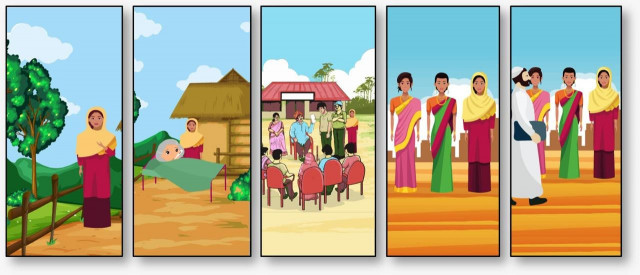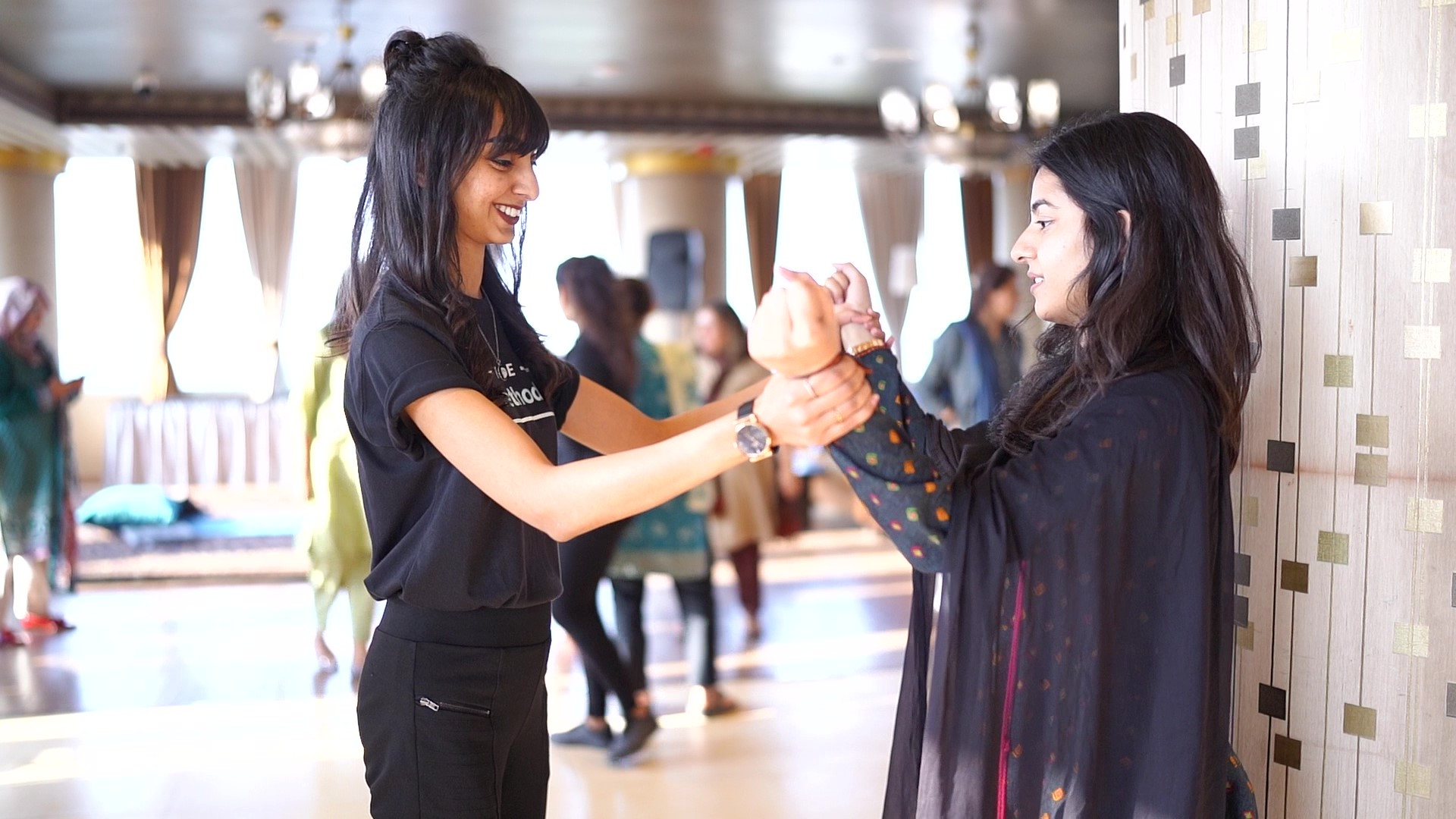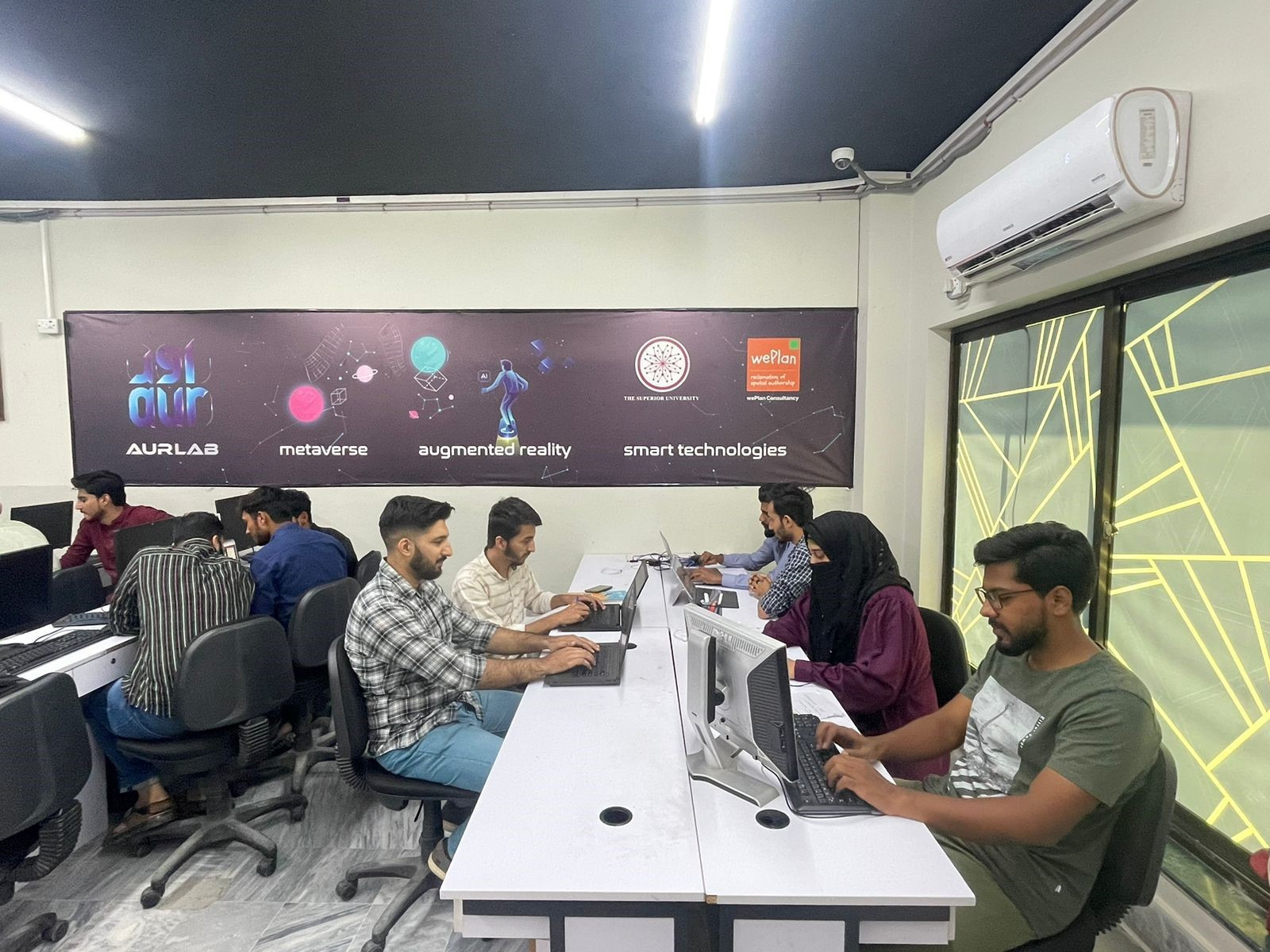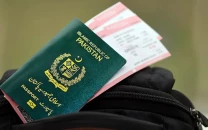Empowered women, empowering startups
Pakistan's growing number of women entrepreneurs are providing innovative solutions that cater to women-specific needs

Pakistan is a country with a rich cultural heritage and a diverse population. Despite the progress made in recent years, women in Pakistan continue to face significant challenges, particularly in the workplace. The country has one of the lowest rates of female entrepreneurship in the world, with only one per cent of women owning a business as opposed to 21 per cent of men who are business owners, that too working in informal sector (MSMEs).
However, the recent years have seen a growth in the number of women entrepreneurs in Pakistan who are working to change the narrative. Defying cultural norms and societal pressures these women have created successful businesses that cater to the unique needs of women in Pakistan.
One of the key drivers of this movement is the rise of female-led start-ups built for women in Pakistan. These start-ups are founded and run by women, with the primary goal of addressing the specific challenges and needs faced by women in the country.
These female-led startups also create employment opportunities and drive economic growth in the country. By providing women with the tools and resources they need to succeed, these businesses are challenging gender norms and empowering women to take charge of their lives and careers.
A report by Invest2Innovate indicates that there is a significant gender gap in the start-up ecosystem. Only 1.4% of all investments over the past seven years have gone towards women-led startups. This disparity may be partly due to the fact that married women face the challenge of managing both their household responsibilities and their business ventures, causing them to drop out of the workforce and avoid long working hours outside of the home.
Many women also report a lack of support from their families when it comes to pursuing business opportunities. Additionally, women entrepreneurs often struggle to secure startup capital, receive proper guidance and counseling, open separate bank accounts, access finance for business growth, and obtain financial information related to their business. The distribution of loans by the State Bank of Pakistan (SBP) also reflects a gender gap, with only three per cent of small-medium business loans and 19% of microfinance loans being awarded to women, while the majority of these loans go to men.
Given this backdrop, the rise of female-led startups built for women is a sign of progress and a cause for hope. There are multiple startups that have been created for women by women, including women-specific services which aid and protect them in their daily life.

The self-defence method
Insiya Meherally is the founder and CEO of The Method, an award-winning self- defense training organization that is focused on women. After graduating from Canada’s top business school, she spent three years heading the communications department at InsurTech lab, headquartered in downtown Toronto. Since 2021, she has been working to make The Method’s flagship training accessible.
The incident at Minar-e-Pakistan in August 2021 inspired Insiya to search for self-defense training that is catered to women's everyday safety issues. However, she found that the existing solutions in Karachi were not entirely accessible or affordable to the average Pakistani woman. This is where Insiya saw an opportunity to make a difference.
In 2021, Insiya connected with a trainer in Lahore, Dr Haiqa Nasir, who had spent years perfecting her holistic self-defense workshops. “We clicked instantly," says Insiya. "Over the past year, we’ve trained 700 plus individuals together at organizations across Pakistan, including Procter & Gamble, Shell, and Engro Corp,” she says.
There were several challenges along the way, but passion and determination enabled Insiya to create something truly unique and powerful.
In December 2021, Insiya launched The Method's flagship self defense training in collaboration with District 19. Everything was carefully researched and prepared, and they took their time to perfect the event structure before they settled on the date. Insiya says, "We've been collecting feedback and staying connected to our audience since Day 1, all in an effort to continuously enhance our content and participant experience as we grow."
Insiya believes public events are a great way to immerse their audience in the experience they've designed. Whether they run a workshop at a festival or speak on a panel at a Women's Day event, they are constantly representing their startup and providing a taste of the value they deliver.

Insiya is also grateful to Shell Tameer for its role in the success of her startup. By the time they pitched at Shell Tameer, they were almost a year old and had already trained over 450 individuals. Insiya also found the Shell Tameer Awards 2022 event to be a great opportunity to plug into the greater startup ecosystem and meet other founders doing incredible work in Pakistan.
Insiya's startup has achieved great success, and she has received humbling feedback from her customers. She said, "I was recently having coffee with a friend whom I had met through one of our workshops in early 2022. Halfway through the conversation, she began to share how the training had increased her confidence and how she still remembers the content clearly, even a year later. I am often blown away by this type of feedback and I feel so humbled that we’ve been blessed with this degree of impact!"
Insiya has managed to balance her personal life and her role as an entrepreneur with the help of her community. She says, "Behind every successful venture, you’ll often find incredible community support."
SheKab your ride to work
A ride-hailing service for women in Pakistan, SheKab was founded by Hira Batool Rizvi in 2015, after she witnessed firsthand the difficulties women faced in commuting to work safely. It is providing transportation solutions exclusively for women. The startup aims to empower women by providing them with safe and reliable transportation options, which is a significant challenge for women in Pakistan due to cultural and social norms that limit their mobility.
SheKab allows women to share rides with other women going to the same destination. The platform ensures that all drivers are verified and trained, and that the vehicles are safe and comfortable. By providing safe and reliable transportation options for women, SheKab is helping to increase women's mobility and independence, which can have a significant impact on their personal and professional lives. Women can now travel to work, attend meetings and events, and pursue their education without having to worry about safety or transportation challenges.
In addition to its transportation services, SheKab is also empowering women by providing employment opportunities for female drivers. The startup is working to break gender barriers in a traditionally male-dominated field of driving and is providing training and support to women who want to become professional drivers.
Smartphones help smart women
For many women living in the rural areas of Pakistan, education and personal growth have long been elusive goals. Despite efforts to improve access to schooling and other opportunities, many still face significant barriers that prevent them from reaching their full potential. From limited resources and cultural attitudes to security concerns and inadequate infrastructure, there are numerous factors that contribute to the ongoing challenges these women face. To solve these issues with the use of technology, Maham Wareesha was inspired to create an innovative mobile application that could educate women in rural areas of Pakistan.
She realized that women in these areas often lacked the opportunity to learn and grow, and smartphones can be valuable tools for education and personal development. Her app Smart Women provides features such as self-defense techniques, learning-based mini-games, and online educational videos to empower women and promote gender equality. “I am trying to solve the problem of illiteracy and lack of awareness among women in rural areas of Pakistan," says Maham. "I have observed that women in these areas are not allowed to use smartphones. I believe that my startup can raise awareness about the productive and educational use of smartphones and provide equal opportunities for women in rural areas to succeed in modern society,” she explains.

While developing her startup, Maham faced several challenges, including lack of funding, technical expertise, cultural barriers, and user adoption. She explored various options, such as crowdfunding, grants, angel investors, and venture capitalists for funding. For technical expertise, she hired developers and also partnered with a tech company. To overcome cultural barriers, she worked with local community leaders to educate them about the benefits of her app and address any objections they may have. For user adoption, she focused on marketing and promotion, building a user-friendly interface, and continually updating and improving her app based on user feedback.
Maham's startup received a significant boost when she was given a platform by Shell Tameer to present her startup to a panel of industry professionals. This allowed her to gain insightful feedback on her business plan, elevator pitch, and overall strategy. “With the support of Shell Tameer, I was able to network with other business owners, subject matter experts, and potential investors, which facilitated the formation of alliances and collaborations,” she shares.
Smart Women differentiates itself from other companies in the market by being the first of its kind mobile-based application that provides an experience to get awareness in a real-time environment. Its solution is entirely smartphone-based and works on augmented reality technology. Maham and her team have developed Smart Women in such a way that it can easily adopt any change in technology and work properly, making it a cost-efficient product.
Maham shared that, “This product is based on futuristic technologies such as augmented reality. This technology is in an evolving phase and getting advanced with the passage of time.”
The biggest achievement for Smart Women so far has been to create their Minimum Viable Product (MVP) and make it functional. They have tested it with a few users and are now ready to test it with a larger group of users.
Maham has managed to balance her personal life and her role as an entrepreneur by establishing boundaries between work and personal time. Maham says, “In order to manage my life, I have set both my working and personal hours. As I am the startup's founder I am constantly under guidance of our senior project team members, I assembled a strong team to handle all the challenges and to make my life easier. To make sure that my team was sincere, I worked as a sincere leader.”
Maham was fortunate to form her team into her family, and they genuinely assisted her in achieving her aim. She also ensures that her company culture promotes diversity and inclusion by trying her best to have the maximum number of women in the team.
Maham's advice to other women interested in starting their own businesses is to focus on their mission, build a strong team, and address the challenges that arise. She encourages women to persevere, be creative, and adapt to changing circumstances. Additionally, Maham advises women to maintain a healthy work-life balance, establish boundaries between work and personal time, and seek support from friends, family, or a professional network to manage stress and maintain emotional stability.
Kitchen prep with Kati Katai
Kati Katai, founded by Romesa Aqeel, is a Pakistani startup that is revolutionizing the way women in the country access fresh fruits and vegetables. The startup supplies pre-cut fruits and vegetables through its online platform, making it easier for women to prepare healthy meals for their families while saving time and effort.
The idea for Kati Katai came to Romesa when she realized that many women in Pakistan struggle to prepare healthy meals due to the time and effort required to cut and prepare fresh produce. This often leads to unhealthy eating habits and a lack of access to essential vitamins and nutrients. Kati Katai aims to address this problem by making it easier and more convenient for women to access fresh fruits and vegetables.
Through its online platform, Kati Katai offers a variety of pre-cut fruits and vegetables, including onions, potatoes, tomatoes, and more. Customers can place their orders online and have them delivered directly to their doorstep, saving them the time and effort required to visit the local market and cut the produce themselves.
One of the key benefits of Kati Katai is that it is providing employment opportunities for women in Pakistan. Kati Katai is also promoting healthy eating habits among its customers by making it easier and more convenient for women to access fresh fruits and vegetables. In this way, the startup is helping to address the problem of malnutrition and other health issues that are prevalent in Pakistan.
Kati Katai has already received recognition for its innovative approach to promoting healthy eating and women's empowerment in Pakistan. The success of Kati Katai is a testament to the growing movement of women entrepreneurs in Pakistan who are providing innovative solutions that cater to the needs of women startups and helping to create a more inclusive and equitable society in Pakistan.
In conclusion, the rise of women-led startups is not only beneficial for women entrepreneurs but also for society as a whole. By creating more opportunities for women to start and grow their own businesses, we can help narrow the gender gap in entrepreneurship and create more equitable economic growth. With more support and investment in women-led startups, we can foster a more diverse and inclusive business landscape, where everyone has the chance to succeed and thrive. As we move forward, it is important to continue advocating for women's empowerment and supporting initiatives that help women achieve their full potential



















COMMENTS
Comments are moderated and generally will be posted if they are on-topic and not abusive.
For more information, please see our Comments FAQ